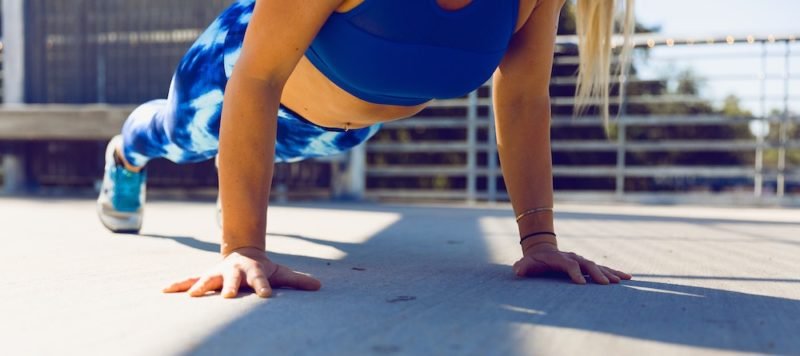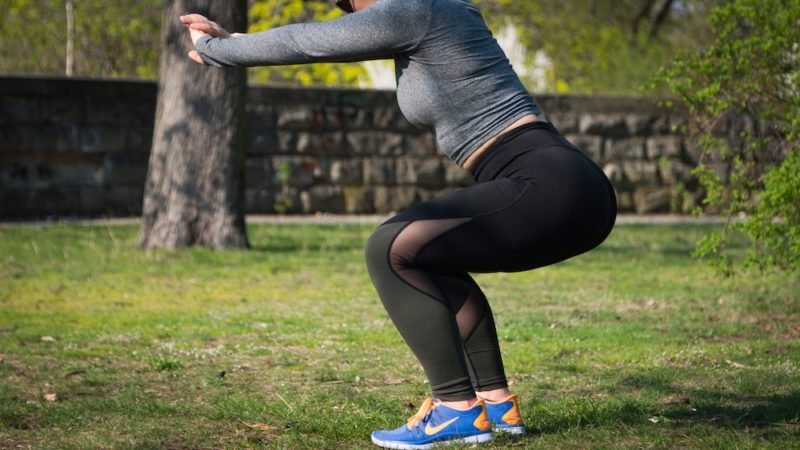
Do you exercise? What’s your exercise motivation? Do you avoid exercise? What’s your exercise frustration?
If there’s one idea about exercise—or physical activity, if you will—that I try to hammer gently insert into the heads of my friends, family, clients, readers (OK, anyone who will listen), it’s that it’s a bad idea to view exercise as a weight loss tool.
Why? Because research is quite clear that, on average, increasing physical activity doesn’t lead to weight loss. You can thank to a goodly number of biological mechanisms that I won’t get into right now. This is especially true if you are talking about an amount of exercise that promotes good health yet still allows you do have time to for important things like sleeping, cooking, getting to work on time—and having a life.
Even for those who do see a downward trend in their weight or pants size when they are being more active, the human body in all its magnificent complexities isn’t a math equation. In other words, X amount of exercise does not necessarily = Y amount of weight loss in a predictable, linear fashion.

Avoiding the exercise mindtrap
What’s more, there are a billion reasons to move our bodies on the regular that have not one iota to do with what our bodies weigh. So when you get trapped in the mindset that exercise = weight loss, one of two things is likely to happen:
- If you are in a thinner body, or are simply happy with your weight, whatever it happens to be, it’s easy to assume that you don’t need to exercise, because you don’t “need to” (or want to) lose weight. This would be an untrue assumption
- If you are in a larger body, or are simply feel like you weight too much, and you start to exercise (or exercise more) and it doesn’t produce your desired amount of weight loss, you’re likely to throw in the gym towel and say something like, “F*ck it…exercise is stupid.” This would be an untrue statement.

Why your exercise motivation matters
A study published in the Journal of the Academy of Nutrition and Dietetics last month highlighted why weight-focused physical activity is a problem. The researchers found that participants who exercised because they wanted to lose weight or prevent weight gain were more likely to eat for emotional rather than physical reasons. They were also more likely to ignore their natural hunger and satisfaction cues. Overall quality of their diets was also lower.
As for the participants who had other reasons for exercising, such as health or social interaction, they had better quality diets and were more likely to eat intuitively, which includes eating primarily for physical reasons…such as because they are hungry!
When people exercise for reasons that are personally relevant on a deeper level than just weight or appearance—because they truly enjoy being active, because staying fit allows them to participate in other activities that are meaningful to them, because they enjoy going for walks with a partner or friend, because it helps them manage stress—they are more likely to maintain the physical activity habit for the long term, which is where the true health benefits lie.
When people fixate on exercise as a way to “fix” their perceived physical flaws, whether that’s body size or jiggly arms or a sagging butt, it’s a set up for disappointment and possibly an injury. It could also contribute to disordered eating—obsessive dieting, a chronic restrict-and-binge cycle, purging, social isolation—or to a full-on eating disorder.

The insanity of exercise obsession
If you listened to my interview on the “Food Psych” podcast last month, you heard me talk about my last full-on, crazy-ass diet, which happened in the few years before I went back to grad school to study nutrition (and learned better). I mentioned that I was also exercising obsessively, but I didn’t get into how much time not just exercising, but planning my exercise took me. I exercised for hours a day, and I’m lucky that I’m not a particular fan of high-intensity exercise or I probably would have really hurt myself. (Actually, I did ignore a sore shoulder at one point and ended up with tendonitis.)
What I was obsessed with particularly was weight lifting. I subscribed to and pored over all the female-oriented bodybuilding and fitness-modeling magazines. I tore out photos of what I wanted to look like and keeping them in a binder (in those plastic protective sleeves, no less). I see now how bananas this was, in part because, hello genetic variation, but also because I didn’t see the signs that were right in front of my face.
Often, these magazines would run interviews with the models, who for the most part competed in fitness or figure competitions (if you’re not familiar with those terms, think “bodybuilding lite”). They would talk about how bitchy and cranky they would get before a competition or “important” photo shoot, when they were eating nothing but plain chicken and green vegetables and doubling down on their weight lifting sessions. Yeah, you think?
Not surprisingly, I recently came across another study that discussed how female physique athletes (which encompasses fitness and figure competitions) frequently have irregular menstrual periods and don’t get enough of essential nutrients due to their intense dietary restrictions and calorie deficits. They struggle with depressed metabolism and increased appetite after competitions—again, due to those intense restrictions, which is necessary to get such an unnaturally low body fat percentage. This leads to frequent weight cycling (aka weight loss-regain-loss-regain), poor body image and disordered eating and/or eating disorders.

But wait, there’s more
Now for the extra bananas part: I spent waaaaay too much time lamenting the fact that, despite the desire, I could never be a figure competitor. Since breaking my ankle (badly) a few years prior, my healed left ankle was permanently bigger than my right ankle, “ruining” any hopes of body symmetry. Oh, and if I tried to walk in those heels the competitors had to wear on stage, I would probably break an ankle again. Yeah, because those were the only things holding me back. (Hello genetics, and hello liking to eat more than chicken breasts and greens.)
Again, as I mentioned in my “Food Psych” interview, there were several points in my dieting life (staring with when I was sent to Weight Watchers at age 16) that could have SO easily triggered an eating disorder if I was genetically predisposed to them (which at this point, I’m confident I am not). I fortunately never moved past chronic dieting and food obsession, which was bad enough and nothing I would ever recommend—professionally or personally.
So what’s my exercise motivation now? Today, I exercise because I like it, because it gives me much needed balance to a life spent doing predominantly sedentary things like writing, developing recipes and seeing clients. When I’m buried in research papers and feel like I’ve broken my brain, going for a walk puts it back together again. And staying active make it easier, and more enjoyable, to travel, which is very important to me.

Disclaimer: All information provided here is of a general nature and is furnished only for educational purposes. This information is not to be taken as medical or other health advice pertaining to an individual’s specific health or medical condition. You agree that the use of this information is at your own risk.
Hi, I’m Carrie Dennett, MPH, RDN, a weight-inclusive registered dietitian, nutrition therapist and body image counselor. I offer compassionate, individualized care for adults of all ages, shapes, sizes and genders who want to break free from eating disorders, disordered eating or chronic dieting. If you need to learn how to manage IBS symptoms with food, or improve your nutrition and lifestyle habits to help manage a current health concern or simply support your overall health and well-being, I help people with that, too.
Need 1-on-1 help for your nutrition, eating, or body image concerns? Schedule a free 20-minute Discovery Call to talk about how I can help you and explore if we’re a good fit! I’m in-network with Regence BCBS, FirstChoice Health and Providence Health Plan, and can bill Blue Cross and/or Blue Shield insurances in many states. If I don’t take your insurance, I can help you seek reimbursement on your own. To learn more, explore my insurance and services areas page.
 Print This Post
Print This Post






